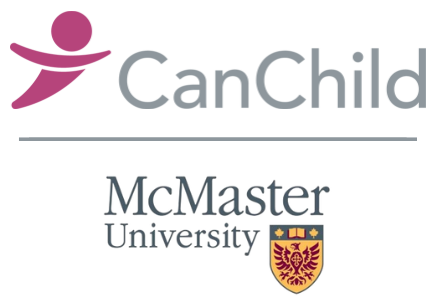ENabling VISions And Growing Expectations


For more information, please contact:
Debbie Hughes (Canada): envisage@mcmaster.ca
(Australia): sp.envisage@mcri.edu.au
Visit our website.
What is ENVISAGE-SP?
There is an exciting array of contemporary new ideas about health and service delivery, captured most clearly in the World Health Organization (WHO)’s International Classification of Functioning, Disability and Health (ICF) and principles of family-centred service. These developments represent significant expansions in our thinking and our approaches to research and service delivery for children with child-onset neurodevelopmental disability (NDD) and their families. These shifts also challenge service providers to take a more holistic, strengths-based, function-promoting, family-centred approach to children’s health and development.
It has long been apparent that how services are delivered can impact child and family health, development, and well-being. Over the last two decades, researchers have begun to study and write about the implications of these changes. How do these developments impact: The family? The way services are provided? What research questions are studied? How service providers (SPs) and organizations do their work? How policies can reflect these developments? Sadly, despite an ever-increasing evidence base, there remains a substantial gap in the adoption of these contemporary ideas in practice.
The Canada-Australia ENVISAGE-Families program has been co-created by parents, researchers and service providers. The goal was to offer parents a series of virtual workshops designed to share new ideas – about health, child-and-family development, parenting, self-care, and communication of these new ideas. It became possible to provide strong evidence that this parent-directed program – what one parent participant called ‘early intervention for families’ – had a significant positive impact on parents’ sense of empowerment and confidence in parenting their children wth neurodisabilities.
Extensive feedback and encouragement from parents in the ENVISAGE-Families program led us to create and test ENVISAGE for Service Providers (E-SP). The goals of ENVISAGE-SP are to make ENVISAGE concepts easily accessible to SPs, and offer insights into how SPs can bring these ENVISAGE concepts to life in their clinical work with children with disabilities and their families. ENVISAGE-SP has the potential to enhance SPs' practice by providing them with a vehicle and tools for how to better support families, preventing, or at least reducing, the levels of identified challenges and stress that families experience. The impact of ENVISAGE-SP is currently (spring 2024) being explored as a research program. If it is found to be useful to SPs, we hope it can be made widely available.
Other developments in the ENVISAGE program include:
- Creation, validation and current implementation of a Croatian-language version of ENVISAGE-Families.
- In Australia, ENVISAGE-First Peoples is underway.
- ENVISAGE-Denmark is being developed as a doctoral research program.
- An ‘integrated’ Parent/SP version of the program is under development as a doctoral thesis at McMaster University.
Disability: Perception of Professionals and Parents
In this video podcast, Dr. Peter Rosenbaum talks about his editorial, 'You have textbooks; we have story books'. Disability as perceived by professionals and parents . The idea of this editorial came from Elizabeth Chambers, a parent who believes in the value of knowing a child or youth with disabilities beyond labels and diagnoses. "He's not found in one textbook, he is a story book. And you have to let him tell you the story and the family around you," says Elizabeth.
